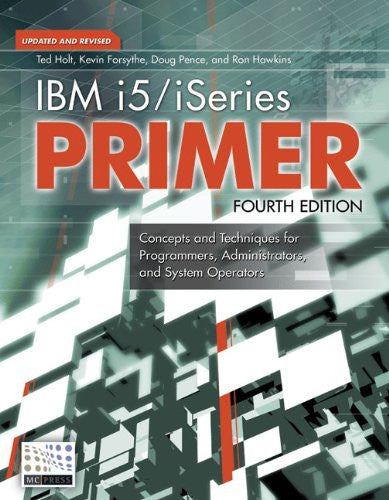Q: Is there a way to do conditional mapping with Open Query File (OPNQRYF)? For example, suppose you have an INVOICE file and a CUSTOMER file that both contain a customer name field. If the customer name field in the INVOICE file contains a value, can you instruct OPNQRYF to use it and otherwise have OPNQRYF use the customer name field in the CUSTOMER file?
- David Andrade
A: Conditional mapping with OPNQRYF is possible. However, there are some limitations. The way to accomplish it is through the use of the %MAX function on the MAPFLD parameter. For example, consider the following OPNQRYF statement:
OVRDBF FILE(CUSTOMER) SHARE(*YES) OVRDBF FILE(INVOICE) SHARE(*YES) OPNQRYF FILE((INVOICE) + (CUSTOMER)) FORMAT(INVOICE) + KEYFLD((INCUST)) + JFLD((INCUST CSCUST *EQ)) + MAPFLD((INNAME + '%MAX(INVOICE/INNAME CSNAME)'))
This statement joins an INVOICE file with a CUSTOMER file using the format of the INVOICE file. The two files are joined by customer number. The MAPFLD parameter selects the greater of either the customer name in the INVOICE file or the customer name in the CUSTOMER file. (To avoid the OPNQRYF error of referencing a field to itself, you must qualify INNAME as has been done in this example.) In most cases, this logic should retrieve the values you want because a customer name containing a value will always be greater than a blank customer name. The only problem is when there's a customer name in both files and the name in the CUSTOMER file is greater. In this case, the customer name in the CUSTOMER file will override the name in the INVOICE file. Since you said you wanted the customer name in the INVOICE file to be used if it exists, this solution may not be acceptable in your situation. However, if you simply want to select the greater of the two names, you should consider using this method.
- Ted Holt

















 Business users want new applications now. Market and regulatory pressures require faster application updates and delivery into production. Your IBM i developers may be approaching retirement, and you see no sure way to fill their positions with experienced developers. In addition, you may be caught between maintaining your existing applications and the uncertainty of moving to something new.
Business users want new applications now. Market and regulatory pressures require faster application updates and delivery into production. Your IBM i developers may be approaching retirement, and you see no sure way to fill their positions with experienced developers. In addition, you may be caught between maintaining your existing applications and the uncertainty of moving to something new. IT managers hoping to find new IBM i talent are discovering that the pool of experienced RPG programmers and operators or administrators with intimate knowledge of the operating system and the applications that run on it is small. This begs the question: How will you manage the platform that supports such a big part of your business? This guide offers strategies and software suggestions to help you plan IT staffing and resources and smooth the transition after your AS/400 talent retires. Read on to learn:
IT managers hoping to find new IBM i talent are discovering that the pool of experienced RPG programmers and operators or administrators with intimate knowledge of the operating system and the applications that run on it is small. This begs the question: How will you manage the platform that supports such a big part of your business? This guide offers strategies and software suggestions to help you plan IT staffing and resources and smooth the transition after your AS/400 talent retires. Read on to learn:
LATEST COMMENTS
MC Press Online